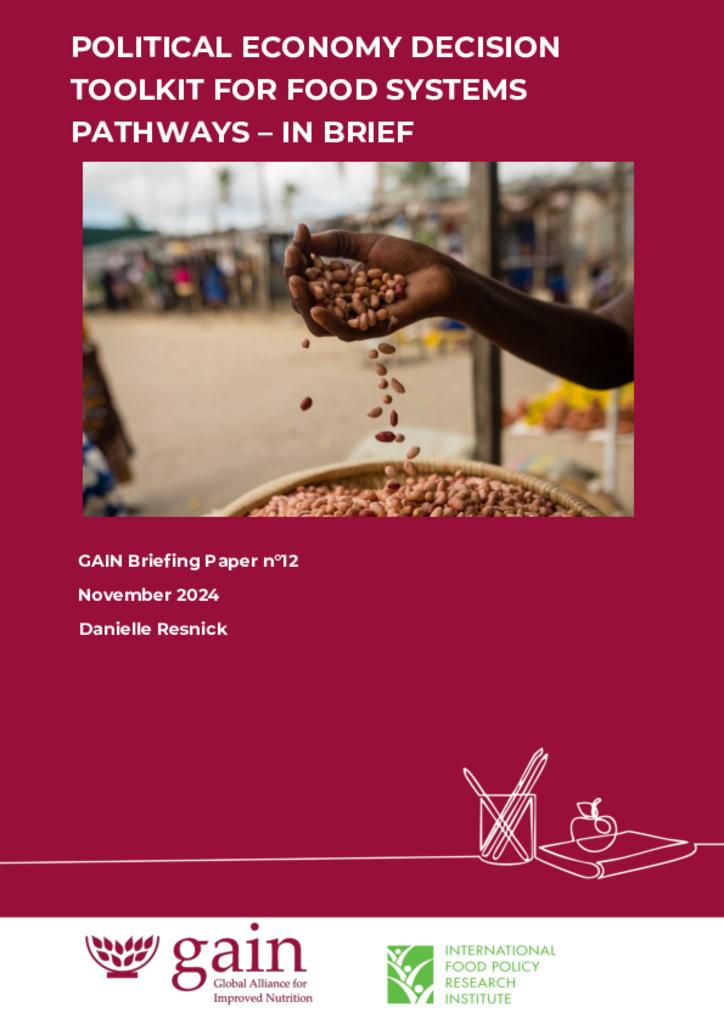Political economy dynamics—that is, conflicts and trade-offs across different interest groups that play an important role in the food system—permeate many decisions about food systems policy and implementation. Development practitioners working in the food systems space—inclusive of agriculture, nutrition, and environment—need to be aware of these dynamics to be able to support policy advocacy, development, and implementation.
To assist in anticipating policy bottlenecks to food systems transformation, a toolkit was developed to examine six main domains within national policy systems. The six domains are: policy stability and inclusionary decision-making, stakeholder preferences, multi-sectoral coordination, multi-level coordination, financing, and administrative capacities.
After identifying why these are critical components for effective food systems policies, the toolkit describes subcomponents of each domain and offers metrics for assessing them. The toolkit provides examples of how to aggregate the metrics, with an application to Mozambique. It also shares examples of best practices for tackling political economy constraints, allowing practitioners to proactively address some of the bottlenecks that they uncover with the toolkit. The toolkit should offer users a practical way to understand and grapple with political economy dynamics as they work to further food systems transformation.
